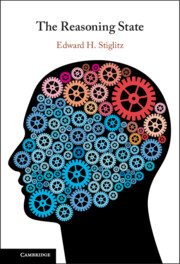8 - Lessons Applied
Published online by Cambridge University Press: 16 June 2022
Summary
This chapter discusses the normative and doctrinal implications of the theory. At the broadest level, the book is skeptical of political control of administrative actions when it comes to particularities. This viewpoint argues against the nondelegation doctrine, popular on the right, and also against models of the state that emphasize presidential control over administrative bodies, widely popular in recent decades. Lodging control over particularities of policy in the hands of democratic organs offers only the illusion of a democratically responsive state, more often delivering various forms of capture. The preferred approach is instead for democratic organs to formulate policy at higher levels, which the public plausibly understands and provides fewer inroads for corruption, and then to have the reasoning state resolve the particularities. The chapter identifies ways in which the reasoning capacity of the state might be improved, for instance through more robust publication requirements and greater use of cost-benefit analysis.
- Type
- Chapter
- Information
- The Reasoning State , pp. 270 - 295Publisher: Cambridge University PressPrint publication year: 2022

